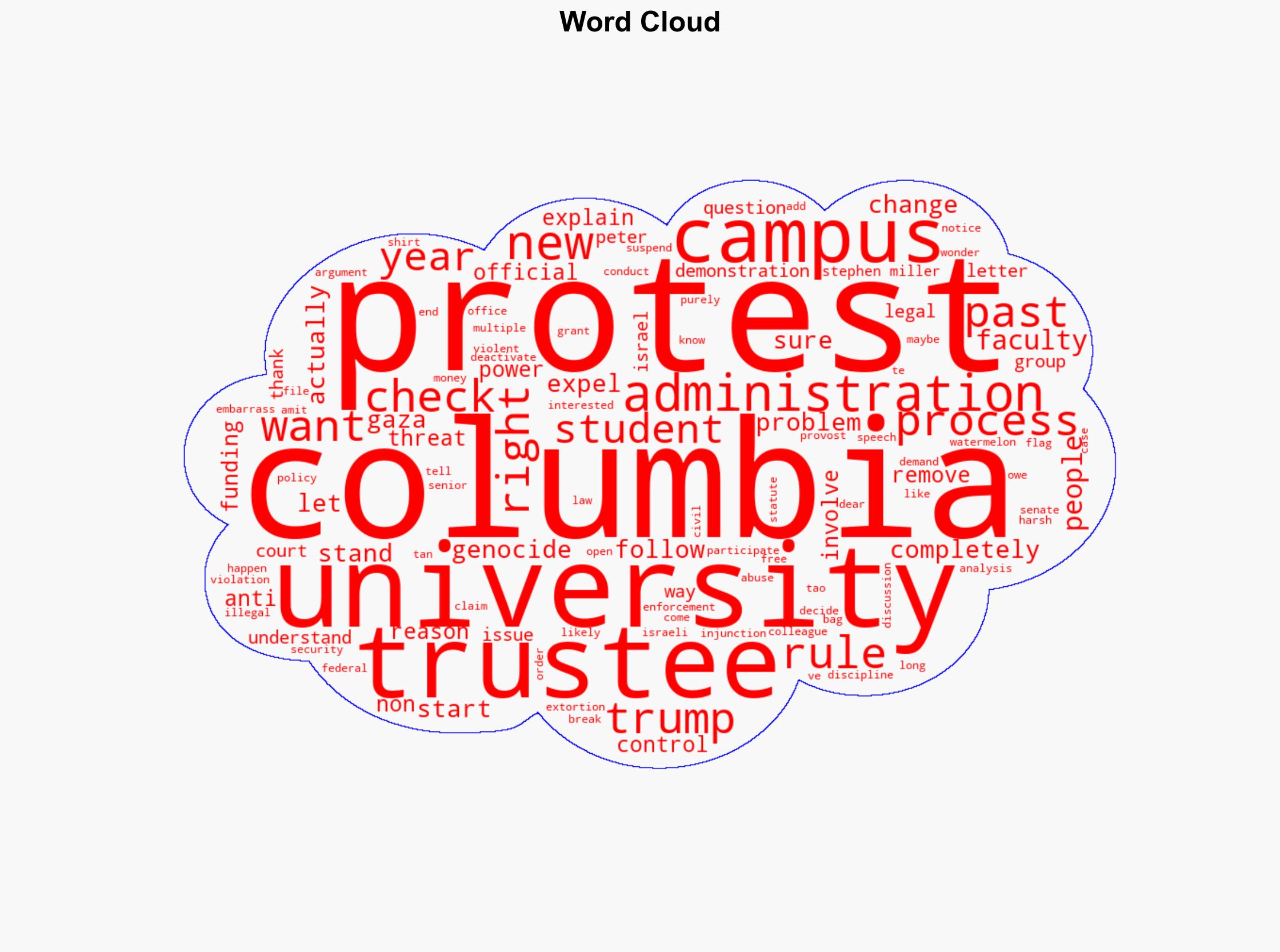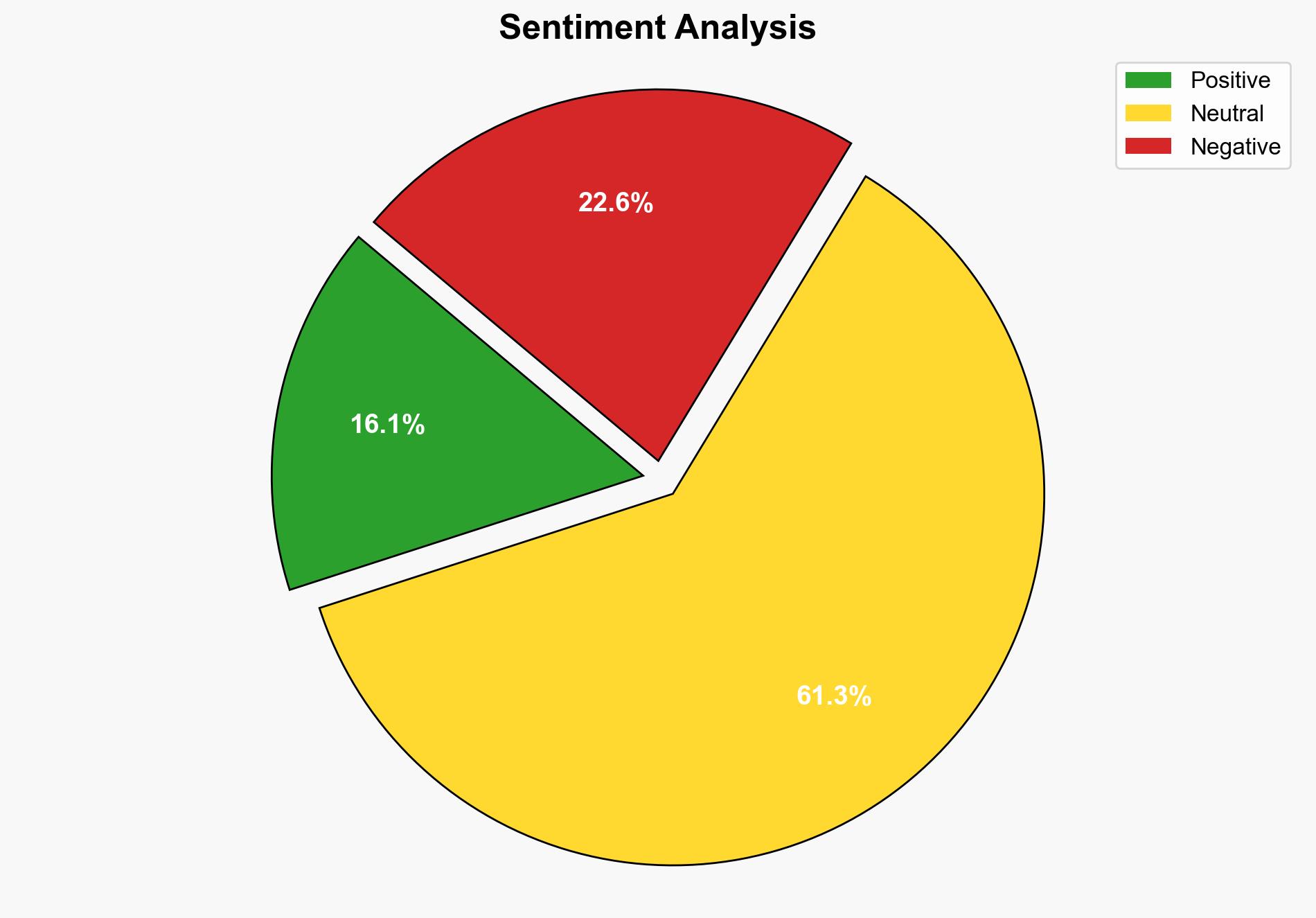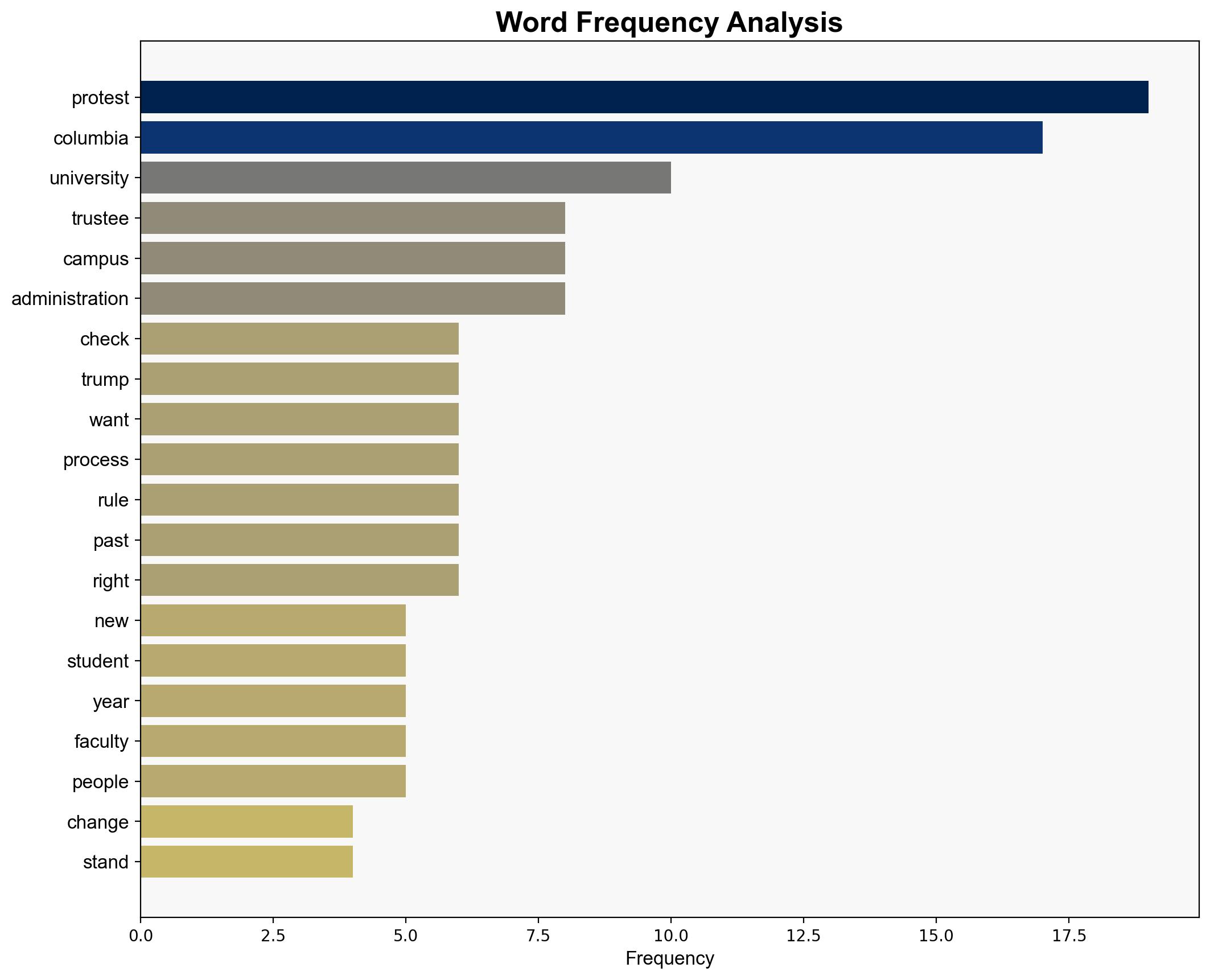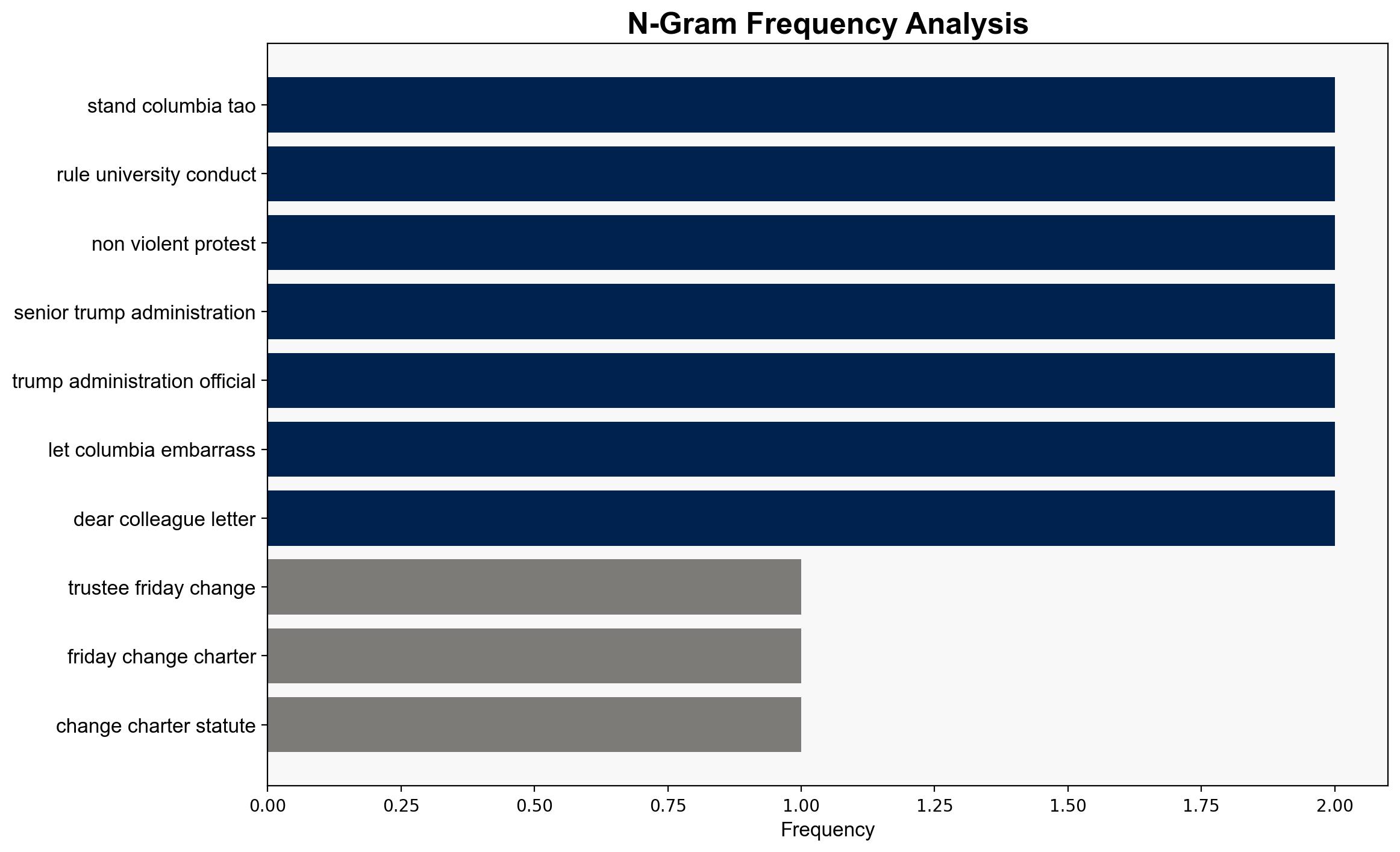The Situation at Columbia XXX – Columbia.edu
Published on: 2025-07-26
Intelligence Report: The Situation at Columbia XXX – Columbia.edu
1. BLUF (Bottom Line Up Front)
The most supported hypothesis is that Columbia University is under external pressure to alter its disciplinary policies to suppress anti-Israeli protests, potentially compromising its institutional autonomy. Confidence level: Moderate. Recommended action: Columbia should engage in transparent dialogue with stakeholders to reaffirm its commitment to academic freedom while addressing external pressures.
2. Competing Hypotheses
1. **Hypothesis A**: Columbia University is independently revising its disciplinary policies to maintain campus order and prevent disruptions, with no external influence.
2. **Hypothesis B**: External pressures, particularly from political figures and entities, are influencing Columbia University to change its policies to suppress anti-Israeli protests, potentially affecting its autonomy.
Using ACH 2.0, Hypothesis B is better supported due to references to political figures like Stephen Miller and the involvement of senior Trump administration officials, suggesting external influence.
3. Key Assumptions and Red Flags
– **Assumptions**: It is assumed that Columbia’s policy changes are directly linked to external pressures rather than internal governance needs.
– **Red Flags**: The involvement of political figures in university affairs raises concerns about autonomy. The lack of explicit statements from Columbia’s administration on the rationale behind policy changes is a potential blind spot.
– **Inconsistent Data**: The absence of a clear, public explanation from Columbia regarding the changes in disciplinary policies.
4. Implications and Strategic Risks
– **Patterns**: Increased political influence on academic institutions could set a precedent for future interventions.
– **Cascading Threats**: Potential erosion of academic freedom and autonomy at Columbia and similar institutions.
– **Escalation Scenarios**: If Columbia succumbs to external pressures, it may face backlash from students and faculty, leading to further protests and reputational damage.
– **Geopolitical Dimensions**: The situation could impact U.S.-Israel relations if perceived as a suppression of pro-Palestinian sentiment.
5. Recommendations and Outlook
- Columbia should publicly clarify the motivations behind its policy changes to maintain trust and transparency.
- Engage with student and faculty representatives to address concerns and prevent further unrest.
- Scenario Projections:
- Best Case: Columbia maintains autonomy and addresses concerns, leading to a peaceful resolution.
- Worst Case: Escalation of protests and external pressures, resulting in reputational and operational challenges.
- Most Likely: Continued tension with periodic protests, requiring ongoing dialogue and negotiation.
6. Key Individuals and Entities
– Stephen Miller
– Tao Tan
– Bari Weiss
7. Thematic Tags
national security threats, academic freedom, geopolitical influence, institutional autonomy





